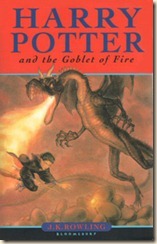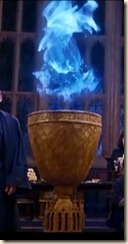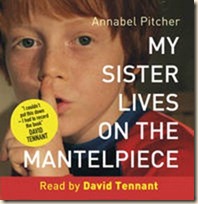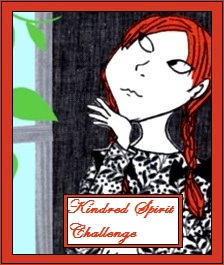It was the summer of 2003. My dad was the first person on the Isle of Wight to pre-order the fifth Harry Potter book, happening to be in the shop where I now work, when the publication date was – after a three-year wait – finally announced. I was in the lower sixth form (junior year of high school, to my American readers) and my friends and I spent plenty of lunchtimes and free periods rereading the initial four books and trying to figure out what clues J. K. Rowling had planted in them, discussing what we thought might happen next. We had picked up on Dumbledore’s look of “something like triumph” when he had heard that Voldemort was now protected by Lily Potter’s sacrifice. What did this mean? What was the Order of the Phoenix, and did it have anything to do with the messages Dumbledore had sent out to Professor Lupin, “the old crowd,” including a Mrs Figg – the same Mrs Figg who had babysat for Harry before he knew of his Wizard heritage? I myself wondered about Dumbledore’s throwaway line about Professor Trelawney having brought her total of real predictions up to two – what was the first, and was it plot-significant?
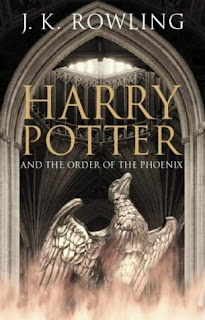 |
| Order of the Phoenix was published with a choice of covers, catering for the growing adult readership who'd rather not be seen reading a kids' book. |
I think this was the first book with a midnight release, with Ottaker’s bookshop temporarily rebranded “Pottaker’s.” (Groan!) I didn’t go to any of the bookshop events, but I did note that HMV was opening an hour early, and I went down there to buy my shiny new book, not even peeking at the back or cover-flap blurbs. In fact, the postman looked at my book before I did. He spoke to me as I was walking home, “Nice day. You’re up early. You haven’t been buying the new Harry Potter book, have you?” he asked, sounding bored. “Yeah…” I said in the same tone. “Oooh! Let’s have a look!”
It was, as the postman had said, a beautiful day, and I read in the garden. All that day, I read – it was a Saturday – but as the day came to a close I realised I’d rather savour it, draw it out a bit longer. Who knew how long we’d have to wait for another new Potter book? But then I had to go back to school on the Monday, with about a quarter of the book left to go. “Have you read the new Harry Potter book?” asked a certain little squirt in the lunch queue. I should name and shame him, but I won’t. “I’m reading it,” I said, “So don’t…” “[NAME OMITTED*] dies,” he said, before I could get my hands over my ears. Thank you very much! I wanted to believe he was just messing around, but I was watching out for the event now, and not surprised when it happened after all. This boy was in my sister’s class and friendship group at school, and apparently he made himself very unpopular both in 2003, and then in 2005, when Half-Blood Prince was published, by giving away crucial plot spoilers to people trying to savour the story. Not decent, old chap. Not cricket.
***
 But worse than the deadly fear is the opposition from the Ministry of Magic. Not only do the Minister and his supporters refuse to believe that Voldemort has returned, but they actively hinder the spreading of the unwelcome news, discrediting it as madness and lies. At Hogwarts, the Ministry is represented by the awful Dolores Umbridge, the latest Defence Against the Dark Arts teacher, who is largely responsible for ensuring that actually learning any kind of self-defence is brutally punished. As Umbridge slowly gains more power at the school, the book’s atmosphere becomes unbearably oppressive. One can’t even love to hate Umbridge, who makes Severus Snape appear a real sweetie by comparison.
But worse than the deadly fear is the opposition from the Ministry of Magic. Not only do the Minister and his supporters refuse to believe that Voldemort has returned, but they actively hinder the spreading of the unwelcome news, discrediting it as madness and lies. At Hogwarts, the Ministry is represented by the awful Dolores Umbridge, the latest Defence Against the Dark Arts teacher, who is largely responsible for ensuring that actually learning any kind of self-defence is brutally punished. As Umbridge slowly gains more power at the school, the book’s atmosphere becomes unbearably oppressive. One can’t even love to hate Umbridge, who makes Severus Snape appear a real sweetie by comparison.As well as my least favourite character in the series, two of my favourite characters, clumsy young witch Tonks, and dippy fourth-year Luna Lovegood, are introduced in this book, and we are reunited with former Defence Against the Dark Arts teachers Remus Lupin and Alastor “Mad-Eye” Moody – the real Moody, this time. We also learn more about Sirius Black, Severus Snape and Harry’s own parents, and some shocking revelations about Harry's father come to light.
We get to see a bit of the wizarding world outside of Hogwarts: much of the action takes place in the Ministry of Magic buildings, and Rowling goes into more detail about Wizard Politics – an ugly game. There are some great plotlines – the titular Order’s covert war against Voldemort despite the Ministry’s opposition, Harry’s mysterious dreams in which he seems to be reading the mind of Lord Voldemort, the students uniting against Umbridge and the Ministry to form Dumbledore’s Army – a sort of trainee Order of the Phoenix - and we learn more about Harry's parents. Yet this book also contains are several subplots which I find less enjoyable to read about. As well as the poisonous Umbridge woman, Hagrid’s story leaves me cold, and Harry throws a year-long strop, shouting at anyone and everyone. Then again, he is fifteen. Finally, I think the scenes at the Ministry of Magic have too high a concentration of weirdness which is left largely unexplained. I take away from the chapters in the Department of Mysteries a vague, blurry impression of sometimes overwhelming, sometimes grotesque magic all happening too fast to take in. Although the Order of the Phoenix is still a great read, it is a vast and chaotic novel which could probably have benefitted from tighter editing.
*Name omitted for COMMON DECENCY, a concept that some people might not understand. Not that I'm still sore, mind you. Not me. Nope.

